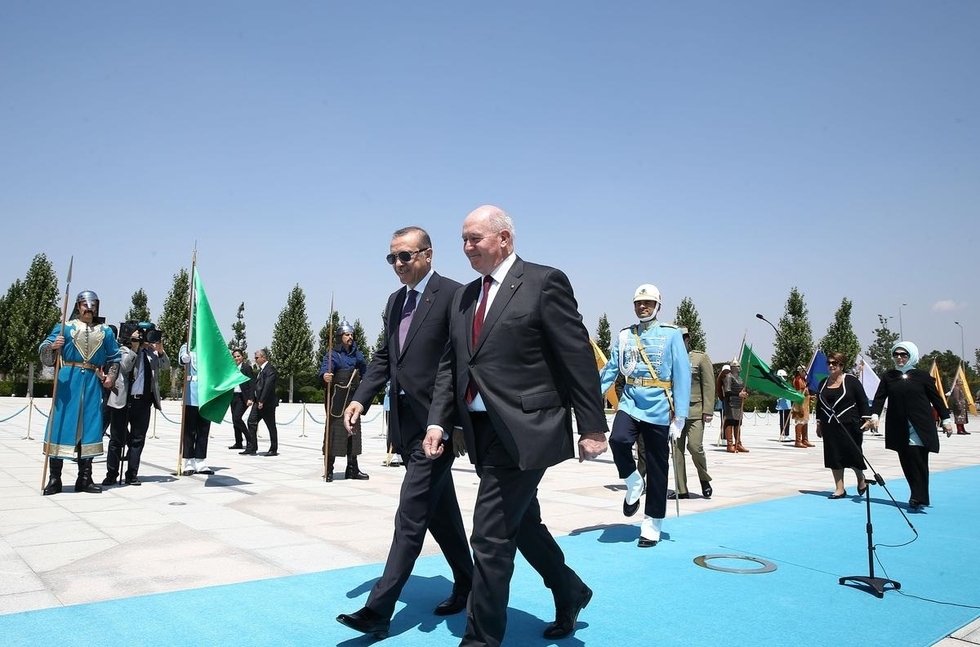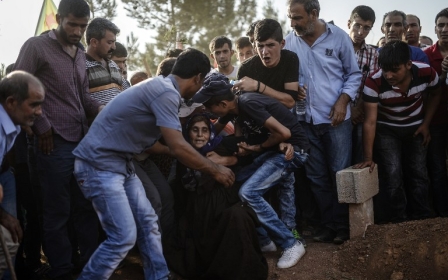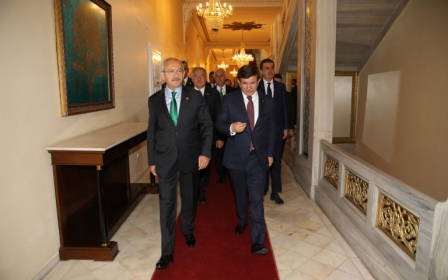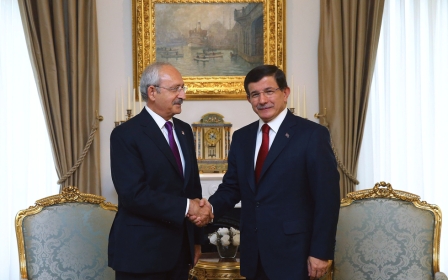Erdogan throws down election gauntlet

After 32 days haggling over the details of a possible coalition, Turkey’s AKP (Justice and Development Party) on Thursday decided to stake its future on early elections, probably in November. It is - as several commentators including Murat Gezici, one of Turkey’s leading public opinion researchers, have pointed out - an enormous gamble. Gezi, writing in the opposition Turkish Cumhuriyet, said it could even amount to suicide.
It is certainly a high risk decision. Opinion polls suggest that new elections will produce results at best only marginally different from the June vote when the AKP failed to win an outright majority for the first time since 2002.
According to the polls, we are likely to once again see a four party parliament. In order to secure a majority, under Turkey’s system of proportional representation, the AKP would have to gain at least 5 percent nationally for an overall majority, a landmark it currently looks unlikely to reach.
So why has the AKP decided not to allow a caretaker government for a year or two and then go to elections when conditions for it are more favourable? The answer seems to be that President Recep Tayyip Erdogan and his advisers feel that snap elections are the best way out of the present political predicament and will give them the greatest chance to hang on to power.
That predicament began when Turkey’s general elections unexpectedly left the AKP 17 seats short of an overall majority. When this happened Turks assumed that a coalition government would eventually emerge, with opinion polls repeatedly showing that around two thirds of the Turkish public wanted a coalition government in office.
However, until a coalition emerged the pre-election AKP government was able to remain in power on an acting basis. Despite its provisional nature, the old government continued to act as if it was a majority government with a substantial majority supporting it, and it did this despite the fact that several key ministers did not stand at the general elections.
In late July - without consulting the National Assembly or the newly-elected representatives and using powers granted in October last year - the acting AKP government perhaps took its boldest decision yet and chose to end the Kurdish Peace process.
On 26 July, Ankara launched more than 100 airstrikes against bases of the Kurdish Worker’s Party (PKK) which is seen as a terrorist organisation in Turkey and many parts of the West. The acting government also signed an agreement with the United States to allow Turkish bases to be used by coalition jets for strikes against the Islamic State group.
Meanwhile moves to form a new government coalition in Ankara proceeded but only at a snail’s pace. Instead of recognising that they have to answer the clear voter mandate, several politicians have emphasised throughout that they would not cooperate with some other parties under any circumstances. The whole episode recalls bouts of disastrous political deadlocks of the 1990s when no party had an overall majority but the parties refused to work together, a situation which left the country in the doldrums for a decade until the AKP election victory of 2002.
Nevertheless for 32 days, teams from the AKP and the main opposition CHP (Republican Peoples Party) negotiated to see if they could find common ground.
It is widely believed that the CHP, which has spent most of its life in recent decades in the political wilderness, was eager for a spell in office. But what it was not prepared to do was to act as a caretaker until early elections could be held.
On Thursday evening, Prime Minister Ahmet Davutoglu, and Kemal Kilicdaroglu, the CHP leader, gave conflicting accounts of what had gone wrong, but what came strongly through was that the AKP had wanted a short-term government and the CHP a long-lasting one.
Turkey now faces a period of significantly greater political tension than it saw this spring in the run-up to the June elections.
At least then it was not facing problems with terrorism. Today, in contrast, it faces a potential double threat. The end of the peace process with the PKK has sparked a deadly campaign in which several policemen or soldiers are been killed almost every day. On top of that there is the threat from the Islamic State group. IS is thought to have killed 34 people in a suicide attack in Suruc in southern Turkey on 20 July. With Turkey now allowing its air bases to be used for airstrikes by the international coalition against IS, there is a risk of new attacks.
The PKK says its attacks are a response to the bombings of its bases by the government. If these stop, it will stop attacking too, it says. But Erdogan has made it clear that there will be no let up until the PKK surrenders.
It looks therefore as if the AKP will fight the elections on the issue of terrorism, doing so in an attempt to undermine the pro-Kurdish HDP (Peoples Democratic Party) and its charismatic leader, Selahattin Demirtaş.
If the HDP’s share of the votes can be pushed back below the 10 percent entry requirement (from the 13 percent it secured in June) it would not get any seats in the next parliament. If this happened, Turkey would only have a three party parliament, with the AKP regaining its majority.
There is another possible reason however why the AKP has taken the line it has on early elections.
This is the corruption issue and the revival of corruption charges originally launched in December 2013 against the sons of four ministers and other figures very close to the AKP. These might be revived in a parliament not dominated by the AKP.
This week two of the prosecutors who launched the anti-corruption cases fled Turkey, hours ahead of a government prosecution charge which would have arrested them on grounds of trying to stage a coup. They are now believed to be in Germany.
Turkey is expected to press for the two prosecutors to be extradited but the EU has already expressed disquiet over the affair. Meanwhile, as long as the present parliament with its non-AKP opposition majority operates, there is a possibility that charges might be reintroduced and approved by a majority.
If no government is formed by 23 August, the constitutional deadline for doing so, then the mechanics of holding early elections will be the next big test.
Article 16 of the Turkish Constitution says that in the case the parties cannot form a government, an interim administration should be set up, based on the representation of each party in parliament until early elections are held at the behest of the president.
The AKP will probably sidestep this by trying to get a motion passed calling for early elections - this would mean it would stay in office until after the vote, and it may be supported by the ultra-nationalist MHP, which is determined to exclude the pro-Kurdish HDP from even a whiff of power.
Turks are bracing themselves for a tense, perhaps even a violent autumn, with no certainty that the country will return to stable single party government after the elections.
- David Barchard has worked in Turkey as a journalist, consultant, and university teacher. He writes regularly on Turkish society, politics, and history, and is currently finishing a book on the Ottoman Empire in the 19th century.
The views expressed in this article belong to the author and do not necessarily reflect the editorial policy of Middle East Eye.
Photo credit: Turkish President Recep Tayyip Erdogan welcomes Governor-General of Australia Peter Cosgrove in Ankara (AA)
New MEE newsletter: Jerusalem Dispatch
Sign up to get the latest insights and analysis on Israel-Palestine, alongside Turkey Unpacked and other MEE newsletters
Middle East Eye delivers independent and unrivalled coverage and analysis of the Middle East, North Africa and beyond. To learn more about republishing this content and the associated fees, please fill out this form. More about MEE can be found here.






